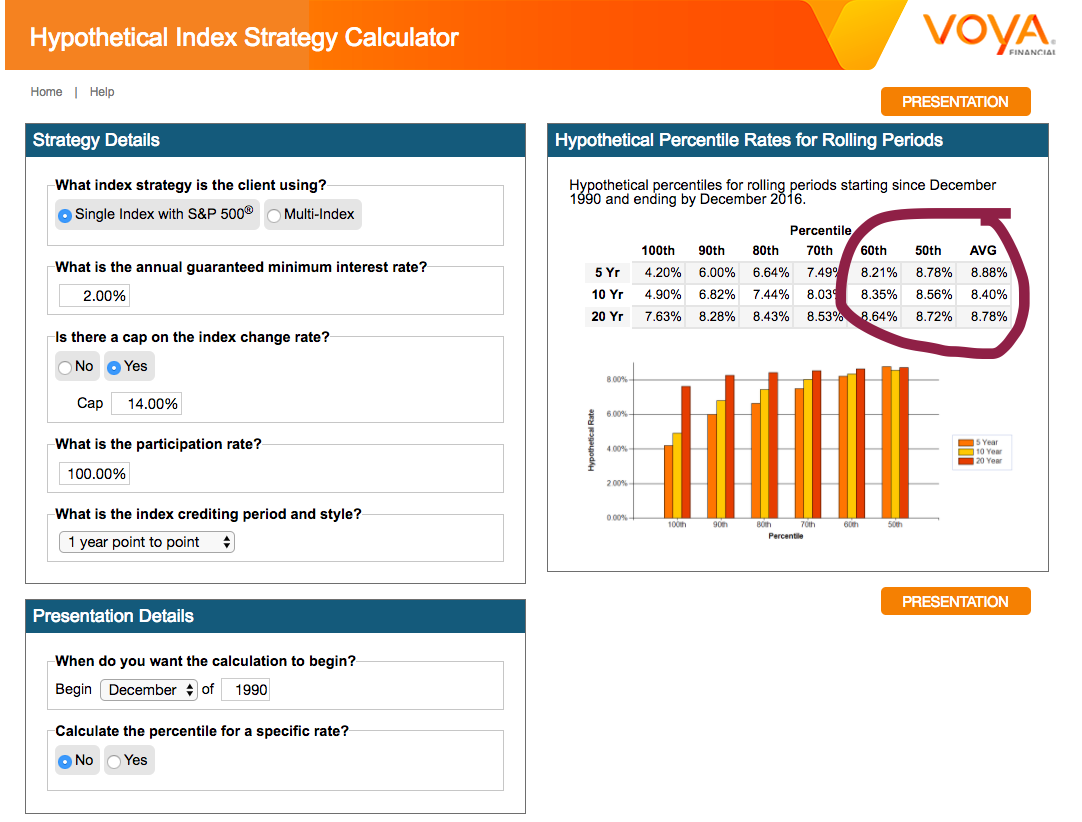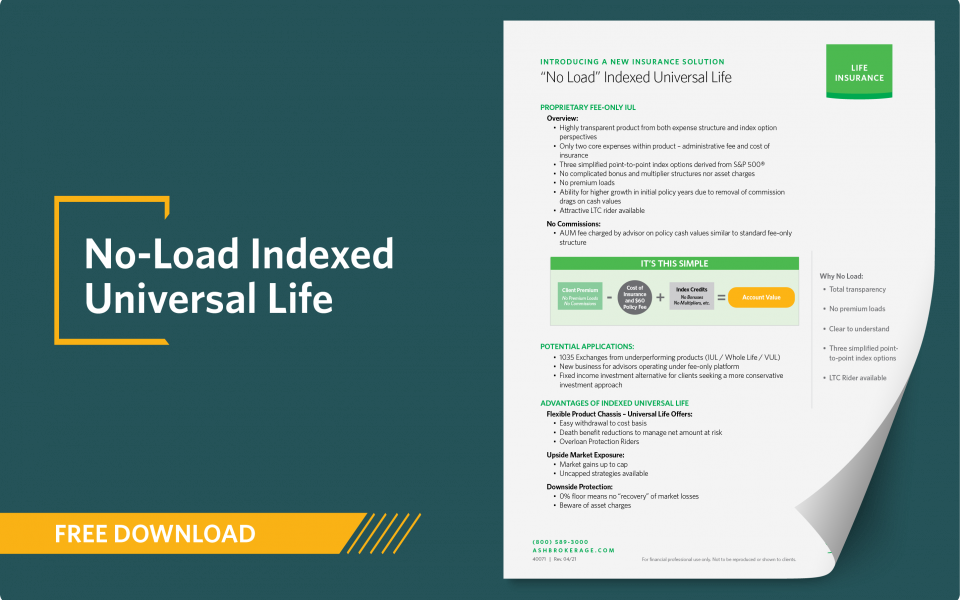All Categories
Featured
Table of Contents
Do they compare the IUL to something like the Vanguard Overall Supply Market Fund Admiral Shares with no lots, an expense proportion (EMERGENCY ROOM) of 5 basis factors, a turn over ratio of 4.3%, and an extraordinary tax-efficient document of circulations? No, they compare it to some awful proactively taken care of fund with an 8% load, a 2% EMERGENCY ROOM, an 80% turnover ratio, and a horrible record of temporary funding gain circulations.
Mutual funds frequently make annual taxed distributions to fund owners, even when the value of their fund has dropped in worth. Shared funds not only need earnings coverage (and the resulting annual taxes) when the mutual fund is rising in worth, however can additionally enforce income tax obligations in a year when the fund has actually dropped in value.
That's not just how mutual funds function. You can tax-manage the fund, gathering losses and gains in order to decrease taxed circulations to the financiers, yet that isn't somehow mosting likely to transform the reported return of the fund. Just Bernie Madoff types can do that. IULs avoid myriad tax traps. The ownership of common funds may call for the common fund proprietor to pay approximated tax obligations.

IULs are easy to place to ensure that, at the owner's fatality, the beneficiary is not subject to either revenue or inheritance tax. The very same tax reduction techniques do not function virtually as well with mutual funds. There are numerous, commonly pricey, tax obligation traps related to the timed buying and marketing of common fund shares, catches that do not apply to indexed life insurance policy.
Chances aren't very high that you're mosting likely to go through the AMT due to your shared fund distributions if you aren't without them. The remainder of this one is half-truths at finest. While it is real that there is no earnings tax due to your heirs when they inherit the profits of your IUL policy, it is additionally true that there is no earnings tax obligation due to your successors when they inherit a common fund in a taxed account from you.
Universal Life Insurance Reviews
There are better means to avoid estate tax concerns than purchasing financial investments with reduced returns. Common funds may create revenue tax of Social Safety benefits.

The development within the IUL is tax-deferred and may be taken as free of tax earnings through loans. The plan proprietor (vs. the shared fund supervisor) is in control of his/her reportable revenue, therefore allowing them to reduce and even get rid of the tax of their Social Safety benefits. This one is excellent.
Here's one more marginal issue. It holds true if you purchase a common fund for state $10 per share right before the distribution day, and it disperses a $0.50 circulation, you are after that going to owe taxes (most likely 7-10 cents per share) although that you haven't yet had any kind of gains.
In the end, it's truly regarding the after-tax return, not just how much you pay in taxes. You're likewise most likely going to have more money after paying those tax obligations. The record-keeping needs for owning common funds are substantially more complex.
With an IUL, one's records are kept by the insurance provider, copies of annual statements are mailed to the owner, and distributions (if any kind of) are completed and reported at year end. This set is additionally kind of silly. Naturally you should maintain your tax documents in instance of an audit.
Universal Way Insurance
All you need to do is shove the paper right into your tax folder when it turns up in the mail. Hardly a factor to acquire life insurance policy. It's like this individual has actually never ever purchased a taxed account or something. Common funds are frequently component of a decedent's probated estate.
On top of that, they go through the hold-ups and expenses of probate. The profits of the IUL policy, on the various other hand, is constantly a non-probate circulation that passes beyond probate straight to one's named beneficiaries, and is as a result not subject to one's posthumous lenders, unwanted public disclosure, or similar delays and costs.
We covered this set under # 7, yet just to summarize, if you have a taxable shared fund account, you have to place it in a revocable trust (and even less complicated, use the Transfer on Fatality classification) in order to stay clear of probate. Medicaid disqualification and lifetime earnings. An IUL can offer their owners with a stream of revenue for their whole life time, no matter the length of time they live.

This is advantageous when organizing one's events, and transforming properties to earnings prior to an assisted living facility confinement. Common funds can not be converted in a similar manner, and are nearly constantly taken into consideration countable Medicaid properties. This is one more stupid one advocating that inadequate people (you understand, the ones that need Medicaid, a federal government program for the inadequate, to pay for their retirement home) should utilize IUL as opposed to mutual funds.
Best Iul Companies
And life insurance looks awful when contrasted relatively against a pension. Second, people who have cash to buy IUL over and past their pension are going to need to be dreadful at taking care of money in order to ever before get approved for Medicaid to pay for their assisted living facility expenses.
Persistent and incurable ailment rider. All policies will certainly enable a proprietor's easy accessibility to cash from their plan, usually waiving any kind of surrender fines when such people endure a major ailment, need at-home treatment, or become confined to an assisted living home. Shared funds do not give a comparable waiver when contingent deferred sales costs still relate to a mutual fund account whose owner needs to sell some shares to fund the expenses of such a remain.
Indexed Life Insurance Pros Cons
Yet you obtain to pay more for that benefit (cyclist) with an insurance plan. What a lot! Indexed universal life insurance policy supplies survivor benefit to the beneficiaries of the IUL owners, and neither the owner nor the beneficiary can ever shed cash because of a down market. Common funds offer no such warranties or death benefits of any kind.
Now, ask on your own, do you actually require or want a fatality advantage? I certainly do not require one after I get to monetary freedom. Do I want one? I mean if it were cheap enough. Certainly, it isn't economical. Generally, a purchaser of life insurance policy pays for the real expense of the life insurance policy advantage, plus the expenses of the plan, plus the earnings of the insurer.
Universal Reinsurance System
I'm not totally certain why Mr. Morais threw in the whole "you can't shed cash" once more below as it was covered fairly well in # 1. He simply desired to repeat the finest selling point for these things I expect. Once more, you don't shed nominal dollars, however you can shed genuine dollars, along with face major chance expense because of low returns.

An indexed universal life insurance policy policy owner may trade their policy for an entirely various plan without causing earnings taxes. A mutual fund owner can not relocate funds from one mutual fund firm to another without selling his shares at the previous (hence triggering a taxed event), and buying brand-new shares at the last, frequently subject to sales charges at both.
While it holds true that you can exchange one insurance coverage for an additional, the reason that individuals do this is that the very first one is such a horrible plan that even after getting a new one and experiencing the very early, unfavorable return years, you'll still come out ahead. If they were offered the right plan the very first time, they should not have any type of desire to ever before exchange it and go via the early, unfavorable return years once again.
Latest Posts
Index Linked Insurance Products
Iul As A Retirement Vehicle
Meaning Of Universal Life Insurance